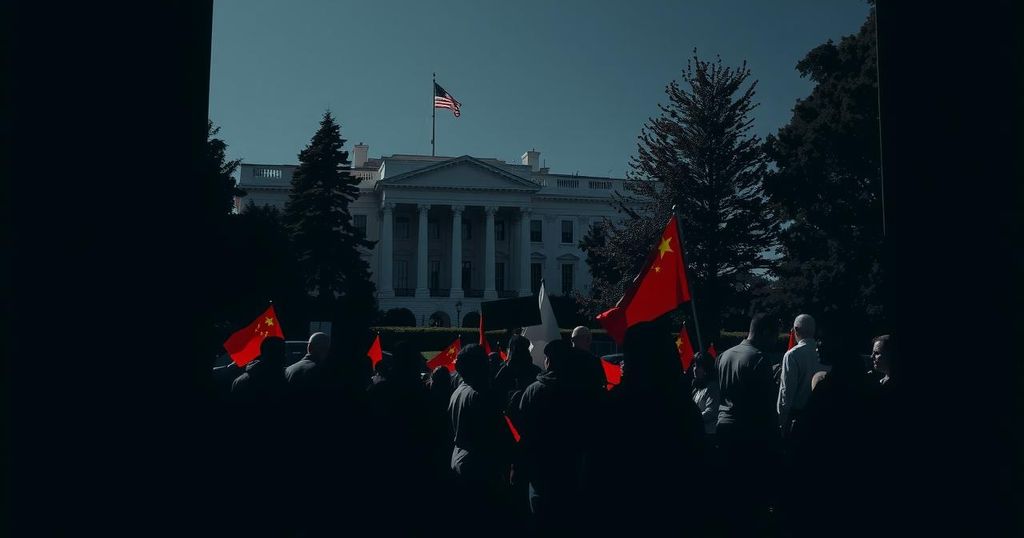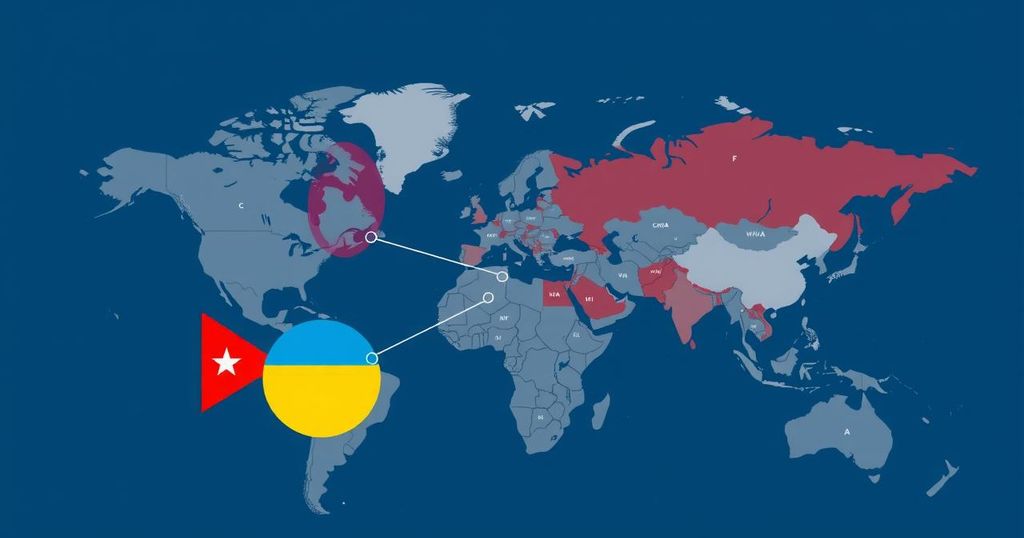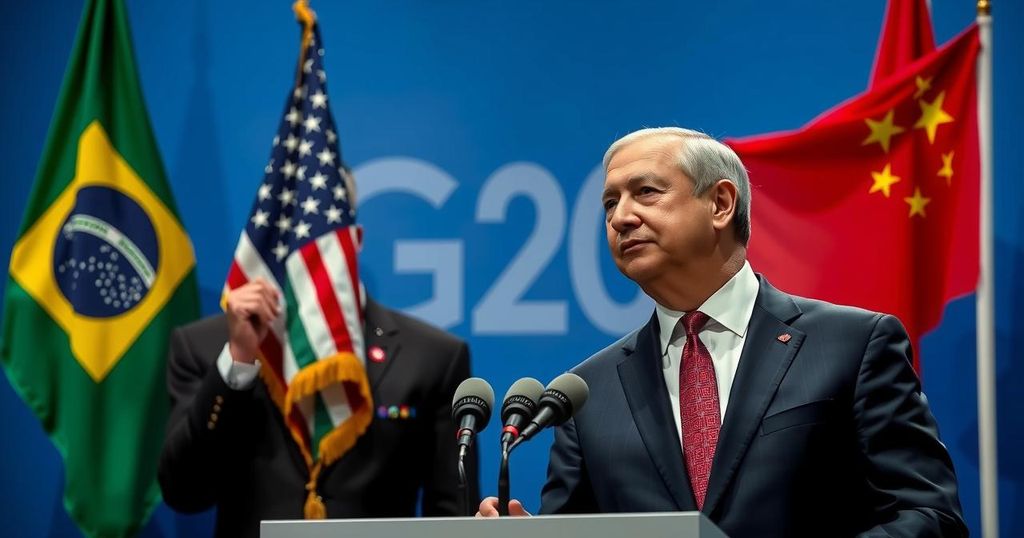Protests Erupt Against China’s Role in Myanmar’s Military Junta
Summary
On Saturday, Burmese Americans protested outside the Chinese Embassy in Washington against China’s alleged support for Myanmar’s military junta. Over 50 participants called for China to stop interfering in Myanmar’s internal affairs and support democratic processes. The protest was driven by a recent statement from the Chinese Embassy in Myanmar denying interference, which protesters vehemently rejected. Activists have coordinated similar protests globally, reiterating calls for an end to China’s backing of the military regime in Myanmar, perceived as facilitating atrocities against civilians.
On Saturday, over 50 Burmese Americans convened in front of the Chinese Embassy in Washington, D.C., to protest against China’s purported interference in Myanmar’s internal affairs. This demonstration was part of a broader global campaign advocating for democracy in Myanmar since the military coup in February 2021. Protesters brandished banners proclaiming “Reject Junta’s Sham Elections” and “Solidarity With the People of Myanmar,” aiming to elicit a retraction of Chinese support for the military junta in Myanmar. The protest was ignited by a statement from the Chinese Embassy in Myanmar asserting that China would not interfere in the affairs of Myanmar and remains committed to promoting peace and stability. Yin Aye, a protest leader and organizer of numerous demonstrations in the Washington area, vehemently opposed this claim. “We reject the Chinese Embassy’s statement that they’re not interfering in Myanmar’s internal matters,” stated Aye, emphasizing the need for China to stop backing the junta and influence it to cease its actions causing suffering for the Myanmar populace. Concerns were raised regarding China’s ties to Myanmar’s military, particularly its recent warning to the Ta’ang National Liberation Army (TNLA), an ethnic armed group operating in northern Shan State, to cease its military offensive. This warning, perceived as undiplomatic, has fueled public outrage against China, as articulated by Hla Kyaw Zaw, an analyst of China-Myanmar relations: “The language used in the letter was undiplomatic and threatening.” Activists participating in the protests worldwide, including demonstrations in cities such as New York, San Francisco, London, and Tokyo, have similarly criticized China’s role in enabling the Myanmar military’s actions following the coup. Despite repeated attempts to deliver open letters to Chinese officials, advocacy groups have reported that their demands are frequently ignored. Activist Minmin Berwald, present at the recent protest, urged an immediate cessation of Chinese support for Myanmar’s military regime, stating, “It’s not just homes being set on fire. Internally displaced people who have fled war are being bombarded.” China’s complex stance on Myanmar, balancing regional stability against its interests, remains a significant point of contention. While concurrent calls have been made for tranquility and mediating talks between various factions, critics, including a veteran China-Myanmar affairs expert, argue that China’s actions do not align with its stated intentions of non-interference and peace.
Since the military coup in Myanmar in February 2021, there has been a sustained struggle for democracy led by pro-democracy groups and ethnic resistance forces. China has been a significant player in this conflict, given its geographical proximity and strategic interests in the region. The relationship between China and Myanmar’s military has drawn scrutiny, particularly concerning allegations of direct interference and support during the ongoing conflict. Activists from the Myanmar diaspora have increasingly voiced their concerns through coordinated protests, aiming to sway Chinese policy and international opinion against the junta’s violent strategies.
The protests outside the Chinese Embassy in Washington are emblematic of a growing dissatisfaction among the Myanmar diaspora regarding China’s perceived complicity in the ongoing violence in Myanmar. Through coordinated efforts, these activists not only seek accountability from China but also intend to raise global awareness about the situation unfolding in their homeland. The ongoing demonstrations highlight the urgent need for equitable support for democracy and a cessation of foreign interference that undermines the aspirations of the Myanmar people.
Original Source: www.voanews.com








Post Comment